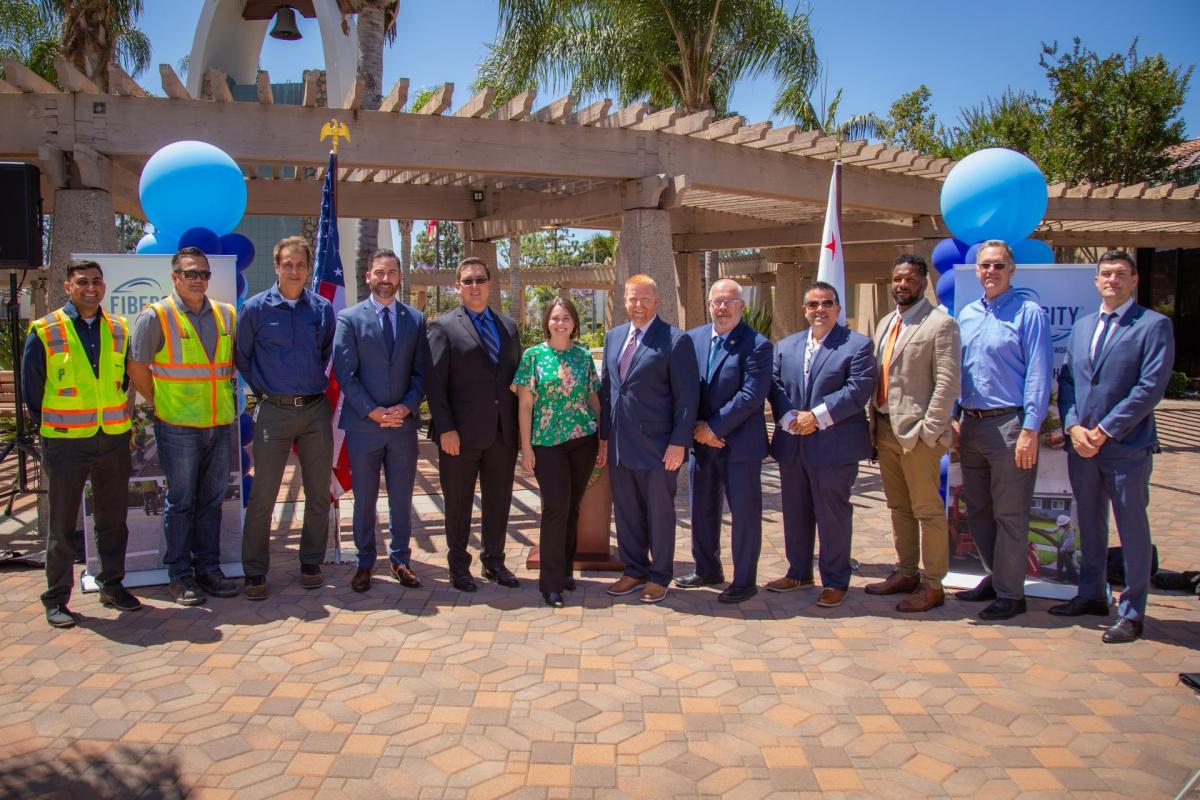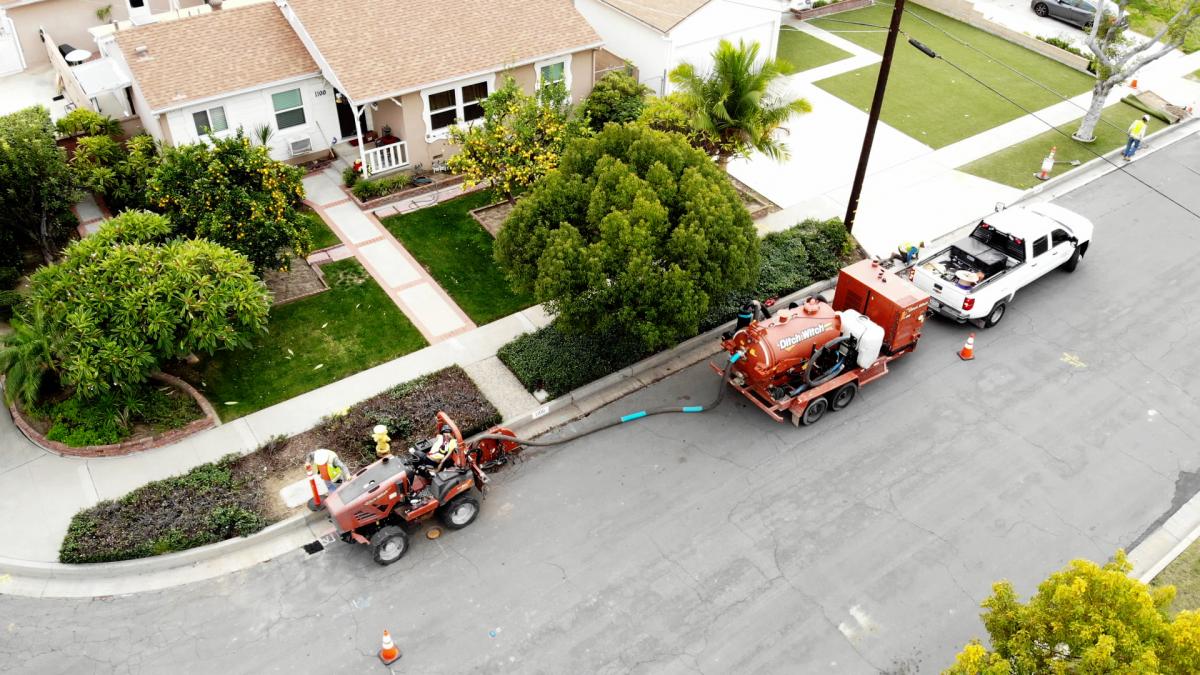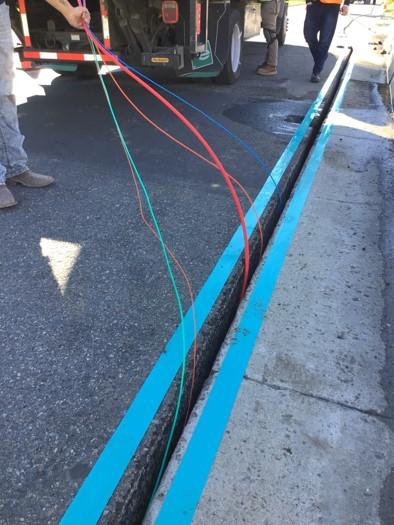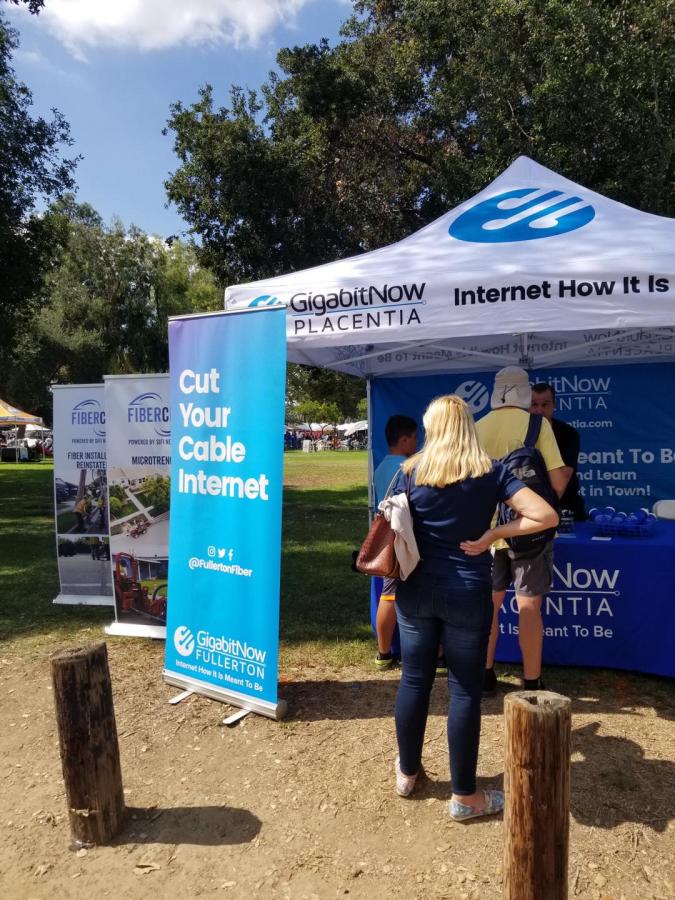Placentia to provide high-speed internet access for all
The city of Placentia won the 2022 Helen Putnam Award for Excellence in the League Partners Award for Excellence in City-Business Relations category. For more information about the award program, visit www.helenputnam.org.
The COVID-19 pandemic forced society to confront many longstanding issues, including unequal access to reliable computers and the internet. When the pandemic hit, virtually every activity went fully online, and many found themselves without access to vital services.
In Placentia (pop. 51,824), city officials were already all too aware of the digital divide and its impact on residents. The city had created a unique public-private partnership in 2019 to deliver fiber optic broadband internet access to every home and business through a new open-access network, Placentia FiberCity.
Scheduled for completion in June 2024, the network will do more than eliminate the digital divide. It will also create new economic development opportunities and ways to deliver city services.
“High-speed fiber networks are critical infrastructure for economic development to thrive in any city, and this unique public-private partnership will improve the city’s ability to retain, as well as recruit new businesses,” said Luis Estevez, the deputy city administrator. “Additionally, Placentia will benefit from developing and sustaining smart city applications to improve the city’s services, from public safety applications to transportation and the environment.”
The challenges to closing the digital divide
Even for those with access to the internet, the digital divide can persist in the form of low-speed wireless connections, high-priced internet connections, and subscription-based content. Often, providers will install high-speed internet only in wealthy areas of a city and Placentia is no exception.
Before the FiberCity project, less than 10% of the city had access to fiber or broadband internet access, with zero access in the city’s disadvantaged neighborhoods according to service provider estimates. Businesses and residents routinely report system problems, slow data transfer speeds, and a lack of customer service in addressing those concerns.
“Unfortunately, the city’s internet service providers could not provide universal broadband access to the entire community due to cost and implementation constraints,” Placentia Mayor Rhonda Shader said. “Therefore, the city’s disadvantaged communities often didn’t receive the same speeds, technology, and service that is normally otherwise afforded to the wealthier areas of our city, which created harmful impacts on student academic achievement and business operations.”
The city’s network will address those perennial inequities and complaints. Placentia FiberCity — built and operated by Sifi Networks — will offer faster speeds at the same cost as existing providers to every area in the city, not just those that can pay the most. Some communities already have access to the network, which provides speeds more than five times faster than what is currently available from other existing service providers.
Another key tool to closing the digital divide in Placentia is the SiFi FiberCity Aid Program, a privately subsidized program offered to SiFi’s internet service providers operating on the Placentia network. Up to 10% of the city’s residential addresses will receive free, gigabit-level internet.
“This program will allow the city and SiFi Networks to provide free broadband internet service to every residential address and apartment unit located in all of the city’s disadvantaged communities,” Deputy City Administrator Luis Estevez said.
New broadband construction methods pave the way for change
Despite recent investments, there is still a need for reliable broadband internet access in residential neighborhoods and business centers in many areas of the state. The challenge to universal broadband access has traditionally been construction methods that make a citywide deployment far too expensive for current service providers to prioritize. Even modest expansions of existing service areas are often met by resistance from local providers due to cost constraints.
To get around this, Placentia and SiFi developed new microtrenching construction standards and techniques that allow for quicker broadband deployment, even in areas with no existing connections. The city also increased SiFi’s access to the public rights-of-way and dedicated significant resources to deploy the network as quickly as possible while minimizing construction impacts.
Rather than utilizing traditional street trench construction methods — which are often costly prohibitive, time-consuming, and disruptive — microtrenching uses a small trenching machine connected to a vacuum truck to cut a 2-inch wide, upon mutual agreement, no less than 12 inches deep trench where the edge of the pavement meets the concrete gutter. This method can be completed much faster than others, requires fewer workers and less equipment, occupies a much smaller footprint in the roadway, and reduces traffic impacts.
To further minimize any impacts, the city and SiFi meet weekly to ensure microtrenching is completed before a planned roadway improvement project. This creates a clean and seamless look, as the new pavement covers the microtrench without disturbing the fiber ducts below the surface.
“Our concerted partnership with the city of Placentia is first-class, and their passion and dedication to achieving their goal to make their city digitally sustainable are admirable,” said Geoff Spickler, vice president of community relations for SiFi Networks. “The citywide network will enable selected lower-income households to connect with our FiberCity Aid program, an initiative we are incredibly passionate about. ”
New economic opportunities and public services
Collectively, this public-private partnership represents a $35 million investment into Placentia’s infrastructure with no contribution from the city’s General Fund. Within the first 12 months of construction, the Placentia FiberCity team installed approximately 45% of the underground fiber ducts, and the first customers went online in October 2022.
The city has already received inquiries from businesses interested in potentially relocating to the city because of the access to a fiber network. The new system will also provide the city with its own closed-loop municipal fiber system under a separate agreement. SiFi will deliver fiber optic lines to every city facility and property and all city data will pass securely between these facilities on a closed-loop system.
In addition to speeding up and securing municipal operations, the network will support new economic development services. It will also allow the city to deploy more secure internet connection points and provide public Wi-Fi access at all city parks and facilities. Soon, this digital infrastructure will also support public safety drone programs and other technologically advanced services and projects.
“The Placentia FiberCity project will provide connectivity for the city to adopt new technologies that are not currently possible because of limited infrastructure,” said Jeremy Yamaguchi, a Placentia city council member. “As a member of the smart city committee, we are exploring new ways to better serve our community, particularly our broadband-disadvantaged neighborhoods within the city.”
Damien Arrula is a city administrator for Placentia; he can be reached at darrula@placentia.org or (714) 993-8118. Watch this video for an overview of the project.




